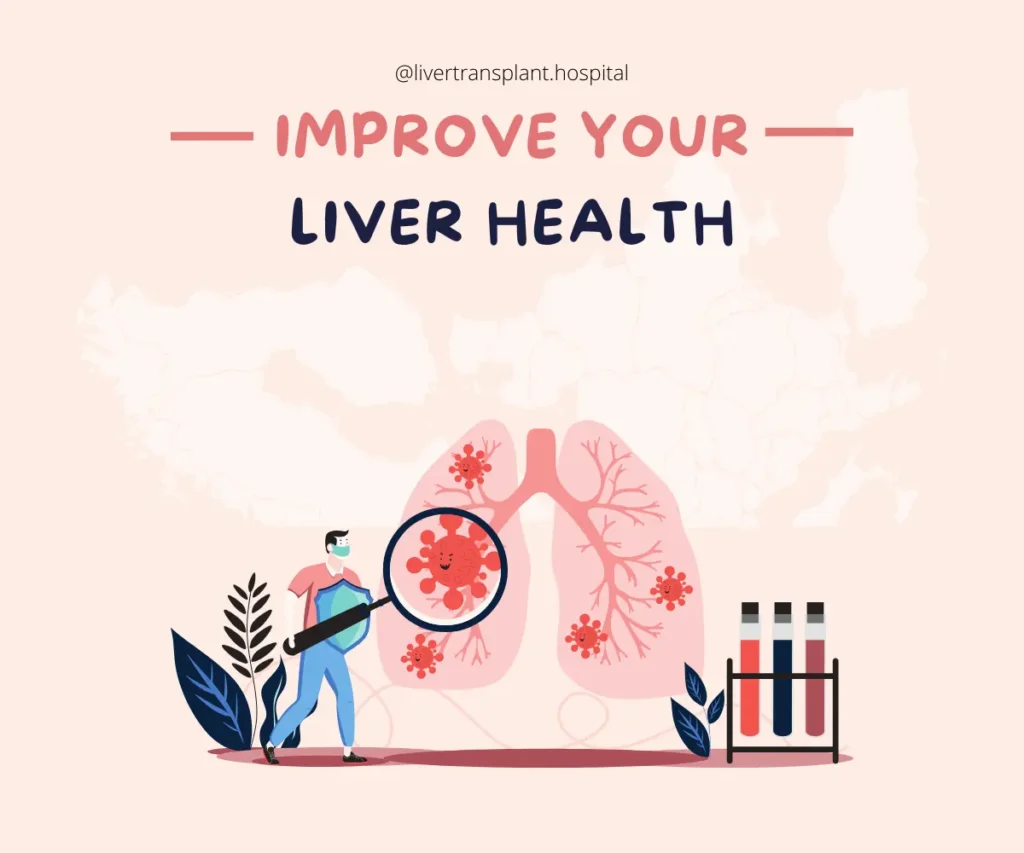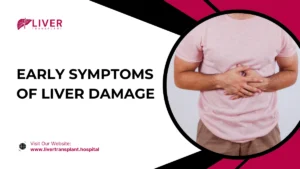When it comes to liver transplant surgeries, selecting the best liver transplant surgeon in Chennai is crucial for ensuring a successful outcome. The expertise and experience of the surgeon significantly impact the recovery and overall success of the transplant.
In this article, we will explore the qualifications and accomplishments of leading liver transplant surgeons in Chennai and provide valuable insights into the costs and procedures involved in liver transplant surgeries.
Best Liver Transplant Hospital in Chennai
VS Hospital
VS Hospital in Chennai stands as a pillar of excellence in the medical field, offering a wide range of specialized services that cater to the diverse health needs of its community. Recognized for its unwavering commitment to quality healthcare and patient-centered services, VS Hospital is a strong contender for the Best Liver Transplant Hospital in Chennai.
- Trusted for specialized medical services
- Dedicated to comprehensive community healthcare
Located at: No. 13, East Spurtank Road, Chetpet, Chennai, Tamil Nadu-600031
Contact: +91 44 4040 5050
Medway Hospital
Medway Hospital in Chennai is a distinguished healthcare institution, known for providing an array of specialized medical services that are designed to meet the unique health requirements of its community. With a strong emphasis on quality healthcare and exceptional patient experiences, Medway Hospital is a prominent contender for the Best Liver Transplant Hospital in Chennai.
- Trusted for specialized medical services
- Dedicated to comprehensive community healthcare
Located at: No. 2, 26, 1st Main Rd, United India Colony, Kodambakkam, Chennai, Tamil Nadu 600024
Contact: +1800 572 3003
Procedures
Liver transplantation involves several key procedures. Initially, patients undergo thorough evaluation to assess their suitability for the procedure. Donor selection, whether from deceased or living donors, is critical, with extensive evaluation ensuring compatibility and safety.
Surgery begins with recipient preparation, where the damaged liver is removed and replaced with the donor liver. The surgical team meticulously connects the new liver’s blood vessels and bile ducts to ensure proper function.
Post-surgery, both recipient and donor receive intensive care to manage pain and prevent complications. Recipients stay hospitalized for about 1 to 2 weeks, while donors typically stay for 5 to 7 days.
After discharge, recipients undergo lifelong follow-up care to monitor graft function and manage medications, ensuring long-term success. Liver transplantation requires a multidisciplinary team, including transplant surgeons, hepatologists, anesthesiologists, nurses, and social workers, to provide comprehensive care at every stage of the process.
Types of liver transplant
Liver transplantation can be classified into several types based on the source of the donor organ and the surgical approach:
- Deceased Donor Liver Transplantation: In this type of transplant, the liver is obtained from a deceased donor who has consented to organ donation. The donor liver is typically procured from individuals who have suffered brain death but whose organs remain viable for transplantation.
- Living Donor Liver Transplantation: Living donor liver transplantation involves the transplantation of a portion of a healthy liver from a living donor, usually a family member or close relative, to the recipient. The donor’s liver has the remarkable ability to regenerate, allowing both the donor and recipient to have fully functional livers after surgery. Living donor liver transplantation offers the advantage of shorter waiting times and potentially better outcomes for the recipient.
- Split Liver Transplantation: In split liver transplantation, a deceased donor liver is divided into two segments: the larger segment, known as the right lobe, is transplanted into an adult recipient, while the smaller segment, typically the left lateral segment, is transplanted into a pediatric recipient. This approach allows one donor liver to benefit two recipients, effectively expanding the donor pool and increasing the number of transplants performed.
- Reduced-Size Liver Transplantation: Similar to split liver transplantation, reduced-size liver transplantation involves transplanting a portion of a deceased donor liver into a recipient. However, in this procedure, the liver is reduced in size by surgically removing a segment before transplantation. Reduced-size liver transplantation is often performed in pediatric recipients or small adult recipients who may not require a full-size liver.
Each type of liver transplantation has its unique advantages and considerations, and the choice of transplant type depends on factors such as the recipient’s medical condition, liver size, and availability of suitable donors.
Cost of Liver Transplant
The cost of liver transplant at Liver Transplant Hospital in Chennai varies depending on factors such as the type of transplant (deceased donor, living donor, split liver), hospital charges, surgeon fees, pre-transplant evaluations, post-transplant medications, and potential complications. In general, liver transplantation is a costly procedure due to its complexity and lifelong medical management. Costs may include preoperative tests, surgery, hospital stay, follow-up care, and immunosuppressive medications. Patients are encouraged to discuss financial aspects with the transplant team, explore insurance coverage, and inquire about financial assistance programs to mitigate expenses and ensure access to this life-saving treatment.
Post-Transplant Care and Recovery
Post-transplant care and recovery are critical aspects of the liver transplantation process. Following surgery, recipients require close monitoring in the hospital’s intensive care unit or specialized transplant unit to manage pain, prevent complications, and ensure the new liver’s proper function. Patients receive medication to prevent organ rejection and may undergo various tests, including blood tests and imaging studies, to monitor graft function and detect any signs of complications.
After discharge from our Liver Transplant Hospital in Chennai, recipients continue to receive lifelong follow-up care to maintain graft health and overall well-being. This includes regular clinic visits, medication management, dietary adjustments, and lifestyle modifications to support liver function and prevent complications. Patients are encouraged to adhere to medical recommendations, attend all scheduled appointments, and report any concerning symptoms promptly to their transplant team. With proper care and adherence to medical advice, recipients can achieve successful long-term outcomes and enjoy an improved quality of life post-transplant.
Risk of Liver Transplant
While liver transplants can be life-saving, they also carry certain risks. These include complications such as bleeding, infection, and rejection of the donor liver. Additionally, patients must take immunosuppressive medications for life to prevent rejection, which can increase the risk of infections and other health issues. However, with careful monitoring and follow-up care, many of these risks can be managed effectively. Understanding these risks is essential for patients and their families to make informed decisions about undergoing a liver transplant.
Potential Risks Include:
- Bleeding and infection post-surgery
- Rejection of the donor liver
- Long-term use of immunosuppressive medications
- Increased risk of infections
Despite these risks, choosing the best hospital in Chennai for liver transplant like CTS Hospital ensures that patients receive expert care to minimize complications.
Success Rate of Liver Transplant
The success rate of liver transplants has improved significantly over the years, thanks to advancements in medical technology and surgical techniques. At CTS Hospital, we boast a high success rate for liver transplants, with most patients experiencing a significant improvement in their quality of life post-surgery. Our multidisciplinary team works tirelessly to ensure that each patient receives personalized care, which contributes to our successful outcomes. The long-term success of a liver transplant also depends on the patient’s adherence to post-operative care and lifestyle changes.
Factors Contributing to Success:
- Experienced surgical team
- Comprehensive pre- and post-operative care
- Advanced medical technology
- Personalized patient care
With a strong track record, CTS Hospital stands out as a premier liver hospital in Chennai with impressive success rates in liver transplants.
Conclusion
Choosing the right Liver Transplant hospital in Chennai is crucial for effective treatment and recovery. Chennai offers several top-tier hospitals equipped with advanced medical technology, experienced transplant surgeons, and comprehensive care teams. These hospitals provide personalized treatment plans, post-transplant care, and high success rates, ensuring the best possible outcomes for patients undergoing liver transplants.






